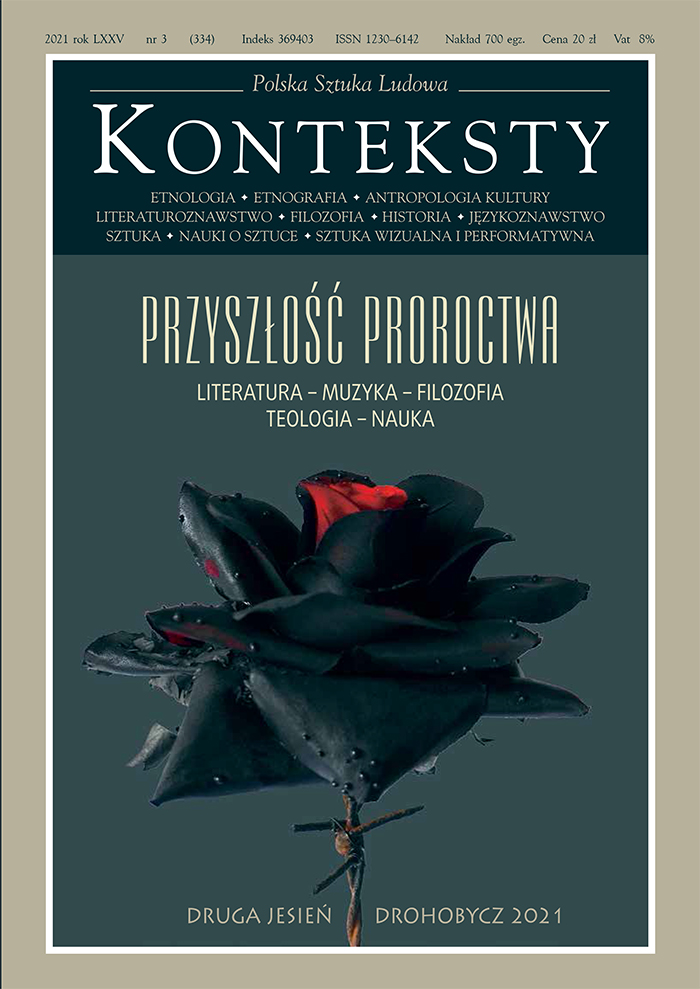Znaki czasu. W oczekiwaniu na zmianę paradygmatu
Signs of Time. Awaiting a Change of the Paradigm
Author(s): Marcin TrzęsiokSubject(s): Philosophy, Theology and Religion
Published by: Instytut Sztuki Polskiej Akademii Nauk
Keywords: prophecy;anthropology;
Summary/Abstract: An attempt at a diagnosis of the situation in which contemporary humanities find themselves: trapped in relativistic discourses, sceptical towards all sort of universalia, and accepting an “axiom of finity” as their quasi-religious credo. In order to be able to overcome this one-sidedness they could benefit from the experiences of natural studies operating on the level of universalism if it were not for the fact that they are affected by a different extremity, i.e. materialistic reductionism, existing also in the theory of consciousness treated as an epiphenomenon – a product of the brain. Consequently, the prime current of natural science anthropology reinforces “the axiom of finity”, although in a different way. An alternative interpretation of the mind and its creative forces (imagination) as well as a different type of relations between humanists and natural scientists was proposed by the Romanticists, who cultivated the “sense of infinity”. Apparently, Romantic stands are today once again assumed by those currents of science dealing with the mind that are not part of the dominating materialistic paradigm. A great summa of those proposals is to be found in Edward and Emily Williams Kelly (et al.), Irreducible Mind. Towards a Psychology for 21st Century (2007). This is an offer of a different model of the brainconsciousness relation: not productive (consciousness is the product of the brain) but transmission (consciousness is a field, with the brain acting as the recipient of, and filter for information contained within). Consequently, they were able to include into the explication range of the theory those phenomena that the materialistic approach could only ignore or recognise as unworthy of attention. But perhaps the future belongs to transmission theories? How would this impact relations between the humanities and nature studies?
Journal: Konteksty
- Issue Year: 334/2021
- Issue No: 3
- Page Range: 67-72
- Page Count: 8
- Language: Polish
- Content File-PDF

